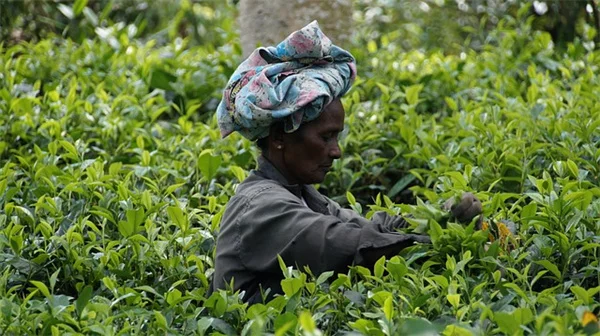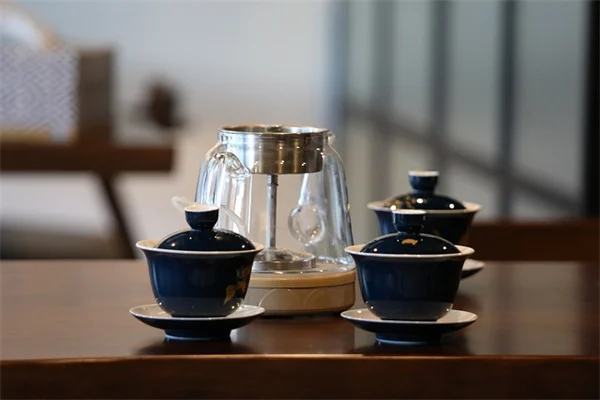Advertisement
Sugary drinks and liver cancer - is there really a connection? The answer is yes, and it's more serious than you might think. A groundbreaking study tracking nearly 100,000 postmenopausal women found that daily consumption of sugar-sweetened beverages doubles the risk of dying from chronic liver disease and significantly increases liver cancer rates. Here's the kicker: women who drank these beverages daily had a liver disease death rate of 17.7 per 100,000 compared to just 7.1 for those who rarely drank them. And get this - 63% of American adults consume sugary drinks daily, meaning this isn't just a problem for one demographic. While more research is needed to understand exactly why this happens, one thing's clear - your soda habit might be doing more damage than you realize, especially to that hard-working liver of yours.
E.g. :5 Proven Ways to Beat Burnout Before It Beats You
- 1、Your Daily Soda Habit Might Be Hurting More Than You Think
- 2、The Bitter Truth About Your Sweet Tooth
- 3、The Million-Dollar Question: Why Does This Happen?
- 4、What This Means for Your Daily Choices
- 5、The Road Ahead: What We Still Need to Learn
- 6、The Hidden Sugar in Your Favorite Drinks
- 7、The Psychological Tricks of Sugar Addiction
- 8、Simple Swaps That Actually Taste Good
- 9、The Surprising Benefits You'll Notice Quickly
- 10、What About Social Situations and Peer Pressure?
- 11、FAQs
Your Daily Soda Habit Might Be Hurting More Than You Think
That Sweet Drink Could Be a Silent Liver Killer
Imagine this - you're grabbing your usual afternoon pick-me-up, maybe a soda or sweet tea. But did you know that daily habit might be doing serious damage to your liver? A massive study tracking nearly 100,000 postmenopausal women found some shocking connections between sugary drinks and liver health.
Here's the scary part: women who drank sugar-sweetened beverages daily had a liver disease death rate of 17.7 per 100,000 person-years. That's more than double the rate (7.1) for those who limited these drinks to three or fewer per month! And get this - the numbers for liver cancer were just as alarming: 18 vs. 10.3 cases per 100,000.
Why This Should Matter to You
Now you might be thinking, "But I'm not a postmenopausal woman - does this really apply to me?" Here's the deal: while this particular study focused on one group, 63% of American adults drink sugary beverages daily. That's nearly two out of every three people you know!
Dr. Raj Dasgupta from USC puts it perfectly: "We usually picture teenagers chugging energy drinks during all-nighters, but the truth is, many adults don't realize how much sugar they're drinking daily." It's like that sneaky coworker who keeps refilling their soda cup at the office fountain - they might not even realize they're on their fifth serving!
The Bitter Truth About Your Sweet Tooth
 Photos provided by pixabay
Photos provided by pixabay
More Than Just Empty Calories
Let's break down what researchers found when they dug deeper:
| Drinking Frequency | Liver Disease Deaths | Liver Cancer Cases |
|---|---|---|
| Daily | 17.7 per 100,000 | 18 per 100,000 |
| 3 or fewer/month | 7.1 per 100,000 | 10.3 per 100,000 |
The researchers weren't surprised by these findings. As they explained, sugary drinks are already known to contribute to obesity, diabetes, and heart disease. These conditions create a perfect storm of insulin resistance and inflammation - both major players in liver damage.
What About Diet Sodas?
Here's some good news for diet soda lovers: the study didn't find the same risks with artificially sweetened drinks. But before you celebrate by cracking open another can, remember - this doesn't mean diet sodas get a free pass. They come with their own set of potential health concerns that researchers are still studying.
The Million-Dollar Question: Why Does This Happen?
Connecting the Dots Between Sugar and Liver Damage
So how exactly does that innocent-looking soda can wreak havoc on your liver? While we need more research to understand all the mechanisms, here's what scientists suspect:
When you flood your system with sugary drinks day after day, your liver gets overwhelmed trying to process all that fructose. It's like asking one employee to handle the workload meant for ten people - eventually, things start breaking down. This constant stress can lead to inflammation, fatty liver disease, and in some cases, progress to more serious conditions.
 Photos provided by pixabay
Photos provided by pixabay
More Than Just Empty Calories
Researchers are particularly interested in how our gut microbiome might play a role in this sugar-liver connection. Think of your gut bacteria as a little ecosystem - when you feed them too much sugar, the balance gets thrown off, potentially sending harmful signals to your liver. It's like throwing a wild party in your intestines and expecting your liver to clean up the mess!
What This Means for Your Daily Choices
Small Changes Can Make a Big Difference
You don't have to completely give up your favorite drinks to protect your liver. Try these simple swaps:
- Instead of soda, try sparkling water with a splash of fruit juice
- Swap sweet tea for unsweetened iced tea with lemon
- Choose whole fruit over fruit juice - you'll get fiber to slow down sugar absorption
Remember, the biggest risk came from daily consumption. Even cutting back to a few times a week could make a significant difference in your liver health.
Listen to Your Body
Our bodies are pretty good at sending signals when something's off. If you're feeling sluggish after sugary drinks or notice you're craving them more and more, that might be your liver's way of saying "Hey, give me a break here!"
As Dr. Dasgupta wisely notes, this research serves as an important wake-up call: "No matter your age, it's crucial to be mindful about what you're putting into your body." Your future self will thank you for paying attention to these warning signs today.
The Road Ahead: What We Still Need to Learn
 Photos provided by pixabay
Photos provided by pixabay
More Than Just Empty Calories
While this study provides valuable insights, the researchers are quick to point out its limitations. The original questionnaires from the 1990s only asked three basic questions about beverage consumption - we didn't get details about specific brands or serving sizes.
But here's the exciting part: the 21-year follow-up period and precise death data make these findings particularly reliable. The researchers are now calling for similar studies in men and younger women to get a complete picture of how sugar affects liver health across all populations.
The Future of Liver Health Prevention
Imagine if reducing sugary drink consumption could become a major public health strategy for preventing liver disease. The researchers suggest this could be possible if future studies confirm their findings. It would be one of the simplest (though not necessarily easiest!) lifestyle changes to implement on a large scale.
As we wait for more research, one thing is clear: that daily soda habit might be costing you more than just the price of the drink. Your liver is working hard for you every day - maybe it's time to give it a little break from processing all that sugar.
The Hidden Sugar in Your Favorite Drinks
You'd Be Shocked by These Sugar Comparisons
Let me tell you something that'll make your jaw drop - your favorite morning orange juice might contain as much sugar as a can of soda! Crazy, right? We're talking about 8-10 teaspoons of sugar in just one 12oz serving. That's more sugar than a glazed donut!
Here's a fun little experiment you can try tomorrow: take your usual breakfast drink and measure out the equivalent amount of table sugar into a bowl. Seeing that mountain of white crystals might just change your perspective on what "healthy" drinks really mean. I did this with my nephew last week and his reaction was priceless - "No way that much sugar fits in my juice box!"
What About Those "Healthy" Alternatives?
Now don't get me started on vitamin waters and sports drinks. These sneaky culprits often market themselves as health boosters while packing a sugary punch. Did you know one popular sports drink contains 34 grams of sugar per 20oz bottle? That's more than two full-size Snickers bars!
And here's the kicker - when we're thirsty after exercise, we tend to drink the whole bottle in one go. That means we're consuming all that sugar in about five minutes, flooding our system with way more than our liver can comfortably process. It's like trying to pour a gallon of milk into a shot glass - messy and ineffective.
The Psychological Tricks of Sugar Addiction
Why Can't We Just Stop at One Sip?
Ever wonder why that first sip of soda tastes so amazing, but by the end of the can, you're barely noticing the flavor? That's your brain playing tricks on you! Sugar triggers dopamine release - the same "feel good" chemical that gets activated when we experience something pleasurable.
But here's the catch - just like with any drug, our brains build up tolerance. The more sugary drinks we consume, the more we need to get that same happy feeling. Before you know it, you're drinking two sodas to get the same satisfaction that one used to give you. I've seen this happen with my morning coffee habit - started with one sugar, now I'm up to three!
The Marketing Magic Behind Your Cravings
Let's talk about how beverage companies use psychology to keep us hooked. Those bright colors, the condensation on the bottle in commercials, the sound of a can opening - they're all carefully designed to trigger cravings. It's not just about taste anymore; it's a full sensory experience!
And have you noticed how soda companies always pair their drinks with happy, energetic people in advertisements? They're selling you a feeling, not just a beverage. Next time you see a soda commercial, try this: mute the TV and just watch the actors' expressions. You'll see what I mean about the emotional manipulation at play.
Simple Swaps That Actually Taste Good
Flavored Waters That Don't Taste Like Disappointment
I get it - plain water can be boring. But before you reach for that lemonade, try these delicious alternatives that won't wreck your liver:
- Cucumber mint water: Just slice up some cucumber and add fresh mint leaves to your water bottle. It's refreshing and looks fancy too!
- Berry ice cubes: Freeze blueberries or raspberries in ice cube trays and add them to sparkling water. As they melt, they release subtle flavor without overwhelming sweetness.
- Citrus zest infusion: Use a vegetable peeler to add thin strips of orange or lemon zest (just the colorful part, not the bitter white pith) to your water.
My personal favorite? Cold brewed herbal tea with a splash of 100% cranberry juice. It gives that tart-sweet flavor we crave without the sugar overload. Plus, it turns a gorgeous pink color that makes me feel fancy drinking it!
The Gradual Reduction Method That Works
Going cold turkey on sugary drinks rarely works long-term. Instead, try this step-down approach that helped me and several friends successfully cut back:
| Week | Strategy | Goal |
|---|---|---|
| 1-2 | Dilute drinks with 25% water | Reduce sugar without noticing |
| 3-4 | Switch to smaller serving sizes | Cut portions in half |
| 5-6 | Replace one daily sugary drink with flavored water | Build new habits |
The key is to go slow enough that your taste buds adjust naturally. I tried rushing this process last year and ended up binging on soda after two weeks. This time, taking it gradually made all the difference - now I actually prefer my coffee with just a hint of sweetness!
The Surprising Benefits You'll Notice Quickly
Energy Levels That Don't Crash
Remember that 3pm slump where you need a soda to power through? That disappears when you reduce sugary drinks! Here's why: without those massive sugar spikes and crashes, your energy stays more consistent throughout the day.
A friend of mine who switched to herbal tea instead of afternoon soda reported feeling more alert during meetings and sleeping better at night. She said, "It's like I removed rollercoaster mode from my daily routine." I noticed the same thing - no more desperate searches for vending machines when my energy dips!
Your Taste Buds Will Thank You
Here's something wild - after about three weeks of reducing sugary drinks, fruits start tasting incredibly sweet. Strawberries taste like candy, apples become dessert, and a single square of dark chocolate satisfies your sweet tooth completely.
It's like your taste buds reset to factory settings. Suddenly you can detect subtle flavors in foods that used to taste bland. My nephew discovered he actually likes the natural sweetness of carrots after cutting back on juice boxes. Who knew vegetables could taste sweet without any added sugar?
What About Social Situations and Peer Pressure?
Handling the "Just One Won't Hurt" Comments
We've all been there - you're at a party trying to avoid soda, and someone insists you "live a little" with a sugary drink. Here's my go-to response that usually shuts down the pressure: "I'm actually training my taste buds to appreciate real food flavors - it's like a superpower!"
Most people respect when you frame it as a positive choice rather than deprivation. And if they keep pushing? Just smile and say, "I'll have one when you join me for yoga tomorrow morning!" That usually gets a laugh and changes the subject.
Restaurant Hacks That Actually Work
Eating out presents special challenges, but these tricks have saved me countless times:
- Ask for your cocktail to be made "skinny" with soda water instead of tonic (tonic has as much sugar as soda!)
- Request unsweetened iced tea with lemon wedges on the side - you can add just a squeeze for subtle flavor
- When ordering juice, ask for it to be diluted with sparkling water - most restaurants are happy to do this
My favorite move? When the server asks what I'd like to drink, I'll say, "What's your most interesting non-sweet option?" This often leads to discovering delicious house-made infused waters or unique herbal teas I wouldn't have tried otherwise.
E.g. :Soft drinks consumption and nonalcoholic fatty liver disease - PMC
FAQs
Q: How much do sugary drinks increase liver cancer risk?
A: The study found some eye-opening numbers about sugary drinks and liver cancer risk. Women who consumed sugar-sweetened beverages daily had 18 liver cancer cases per 100,000, compared to just 10.3 cases for those who limited intake to three or fewer per month. That's nearly double the risk! While the researchers caution that this is observational data, the numbers are too significant to ignore. What's particularly concerning is that many people don't realize how much sugar they're actually consuming through drinks - that afternoon soda, sweet tea with lunch, and fruit juice can add up quickly. The good news? Artificially sweetened drinks didn't show the same risks in this study.
Q: Why would sugary drinks affect the liver specifically?
A: Great question! While we need more research on sugar and liver disease connections, here's what scientists suspect: your liver processes fructose (the sugar in these drinks) differently than other nutrients. When overloaded daily, it can lead to fatty liver disease, inflammation, and eventually more serious conditions. It's like constantly revving your car engine - eventually, that stress causes damage. The study authors note that sugary drinks are already linked to obesity and diabetes, which create insulin resistance and inflammation - both known to harm liver health. Interestingly, they're also looking at how gut bacteria might play a role in this sugar-liver connection.
Q: Does this mean I have to give up all sugary drinks?
A: Not necessarily! The biggest risks came from daily consumption, so even cutting back can help. Try these simple swaps: sparkling water with fruit instead of soda, unsweetened iced tea with lemon instead of sweet tea, or whole fruit instead of juice. The fiber in whole fruit slows sugar absorption, giving your liver a break. Remember, this study followed women for over 20 years - it's the long-term, daily habits that really add up. An occasional treat won't doom your liver, but making smarter choices most days can significantly reduce your risks.
Q: Are diet sodas safer for liver health?
A: Here's the interesting part - this particular study didn't find the same liver risks with artificially sweetened drinks. But before you switch to diet sodas completely, know this: other research has raised questions about artificial sweeteners and health. The bottom line? Water is always your safest bet. If you do choose diet drinks, moderation is key. Researchers emphasize that we need more studies to fully understand all the effects of artificial sweeteners on our bodies, including the liver.
Q: Should men and younger women be concerned too?
A: Absolutely! While this study focused on postmenopausal women, 63% of all American adults drink sugary beverages daily. The researchers specifically call for more studies in men and younger women to understand the full picture. As one doctor noted, we often associate sugary drink consumption with teenagers and college students, but many adults unknowingly consume excessive amounts daily. Your liver doesn't care about your age - too much sugar is too much sugar. Until we have more data, it's smart for everyone to be mindful of their sugary drink intake.







